Laptop Mag Verdict
The Zumy pro quality light provides warm soft lighting that will win you over, but the price may have you think twice.
Pros
- +
Highly portable
- +
Versatile thanks to USB-C adapter
- +
Accordion design
- +
Connects to Android phones
- +
Connects to some cameras
Cons
- -
Outdated Micro USB port
- -
Feels Flimsy
Why you can trust Laptop Mag
The Zumy pro quality light is an interesting little portable lighting solution that clips onto your laptop or Android phone to improve the lighting of your video calls and selfies. Most laptop webcams still shoot in HD 720p with tiny sensors and tend to struggle in low-light scenarios, but the Zumy can make that problem a thing of the past for all but the worst laptop webcams.
The lightweight Zumy produces a soft, warm diffused light that will brighten your appearance without the harshness of some other LED lights, specifically ring lights that emanate harsh, blueish hues. I played with the Zumy for a couple of days — and even discovered something cool for Android users.
Zumy pro quality light price and availability
The Zumy costs $59.99 and you’re probably thinking that’s kind of expensive for such a small foldable light. I agree. It’s a bit overpriced for a couple of reasons, which I will dive into later.
The Zumy pro quality light is currently available at Amazon and B&H Photo.
Zumy pro quality light design
If you’ve ever seen a softbox lighting set up, the Zumy is a miniaturized version of that. The soft rubber accordion rear enclosure expands allowing you to plug the included micro USB power cord into the black plastic housing where you will also find the power button.
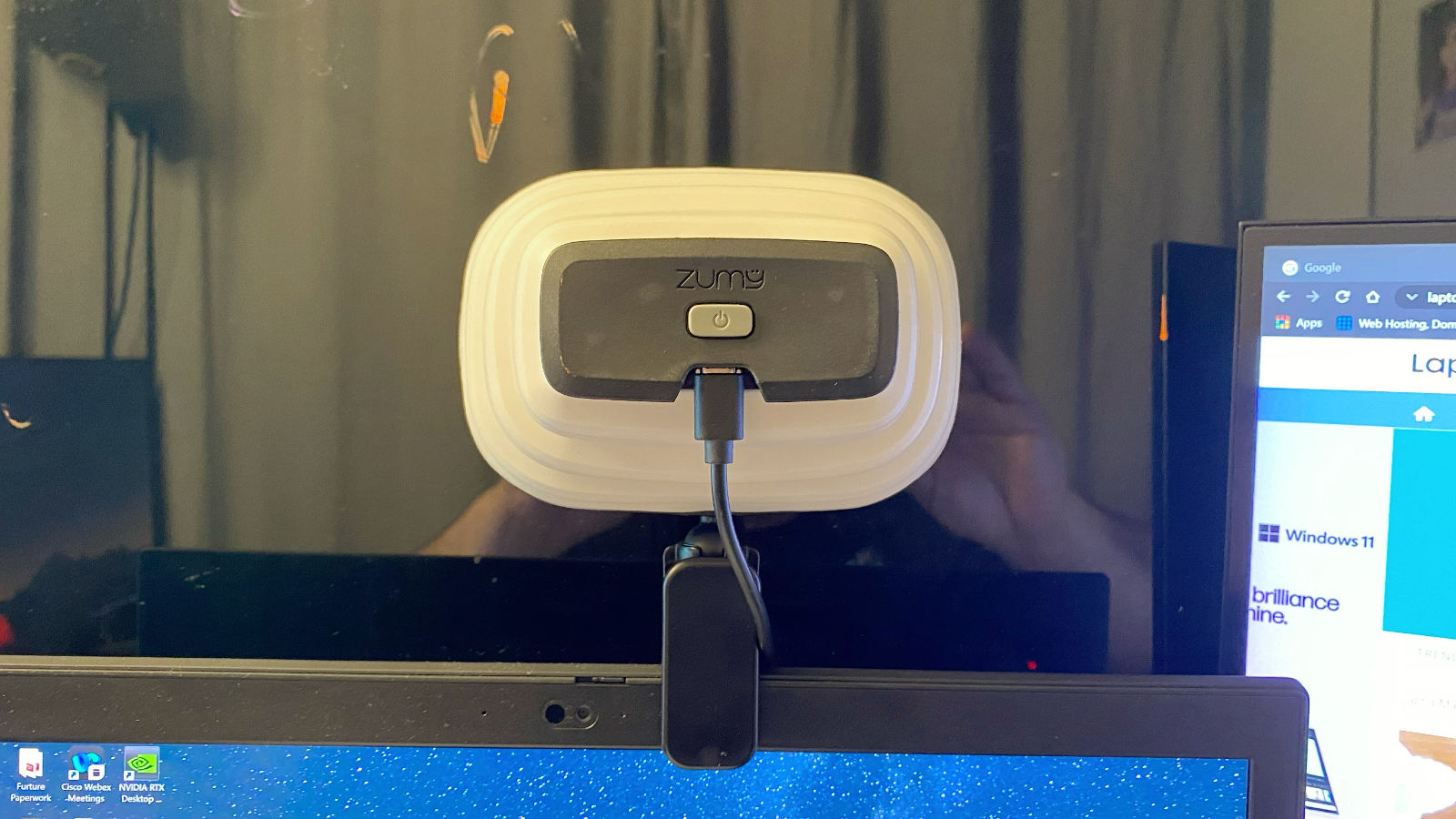
The front of the Zumy features a frosted plastic glass with the Zumy logo at the top. The frosted glass is kept in place by a ring of black plastic that is connected to its spring-loaded clip by a ball joint that can be popped out. The clip has soft rubber on the interior to make sure it doesn't scratch any surfaces you may attach it to.
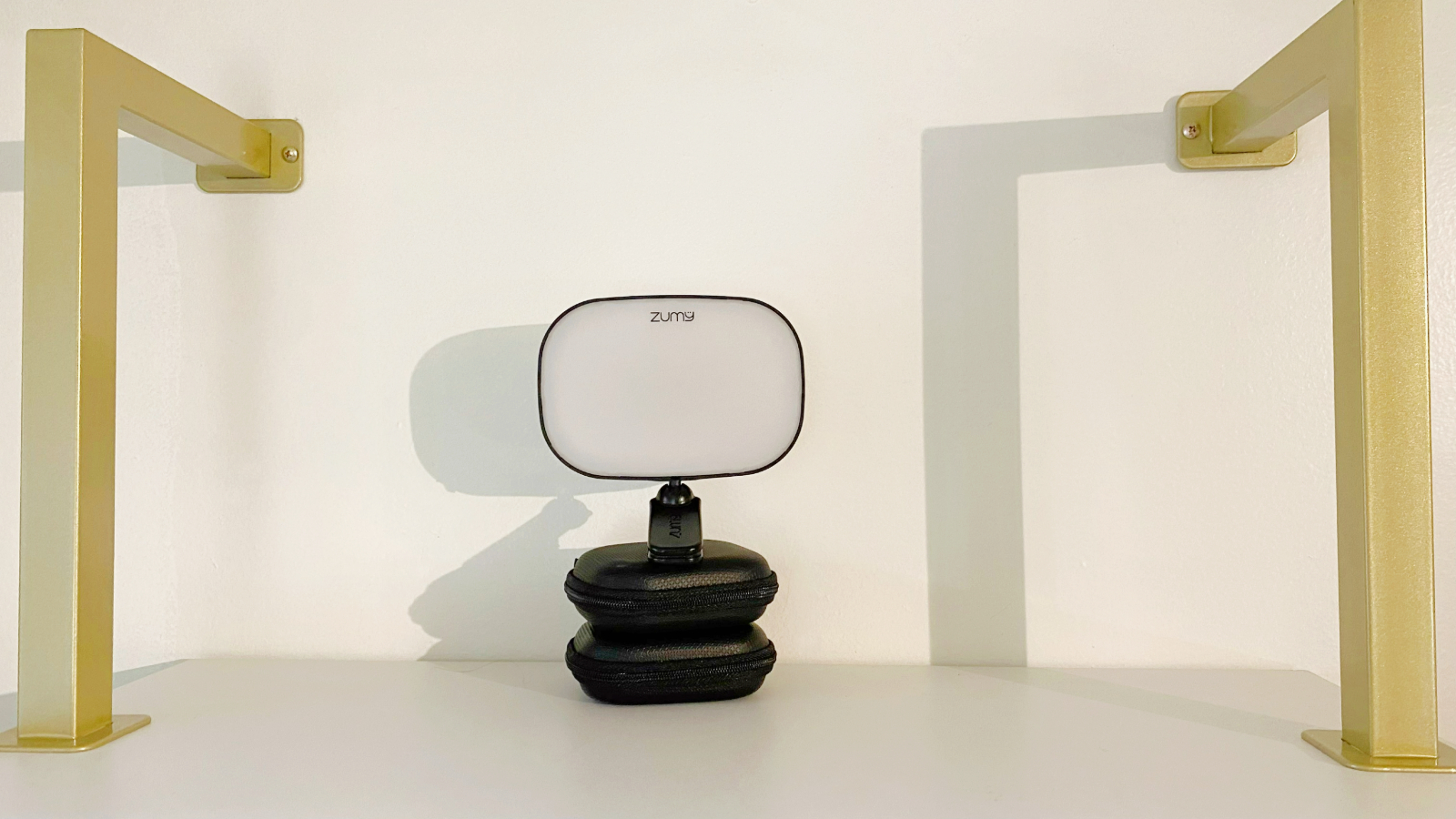
The accordion design makes the unit foldable and portable as the Zumy slips just as easily into a pocket as it does a backpack, taking up virtually no space at all thanks to measuring only 5 x 3 inches and weighing just 8 ounces. The unit ships with a 4.9-foot, USB Type-A to micro USB cable and a USB-C adapter for a MacBook or Android phone with a USB-C port.
Sign up to receive The Snapshot, a free special dispatch from Laptop Mag, in your inbox.
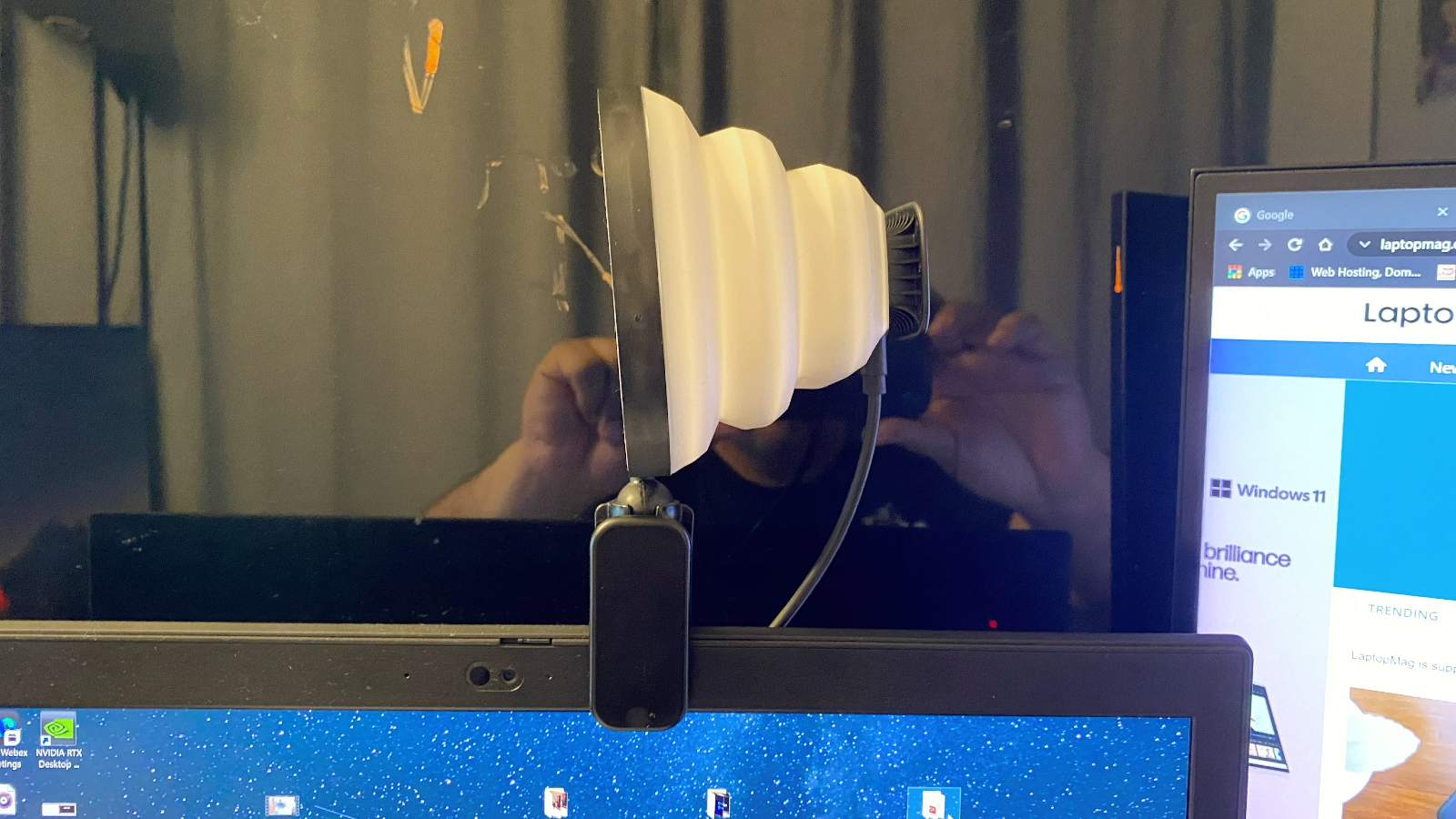
The Zumy pro quality light is so lightweight that it feels kind of flimsy for something that is a penny shy of $60. It’s made of plastic and rubber and that also makes it feel like it is not the most sturdy light you can tote around. However, I did toss it in my camera bag and let it bang around while I took it for a walk and it came out unscathed. I dropped it a few times as well and nothing popped off or broke, so it can take its licks and keep working.
Zumy pro quality light performance
Unlike many LED ring lights that can produce harsh light on their subjects if not filtered, Zumy’s softbox style lighting produces four different levels of soft-toned brightness for your Zoom calls, Google Meets, and selfies.
To test out how well the Zumy performed, I killed the lights, clipped it to my laptop, turned on its 720p HD camera, and took some photos.

I then attached the Zumy’s USB-C adapter, tailor-made for MacBooks, and connected it to the OnePlus 10 Pro we recently reviewed. To my surprise, the Zumy powered up and I took some photos using its lovely softbox lighting.
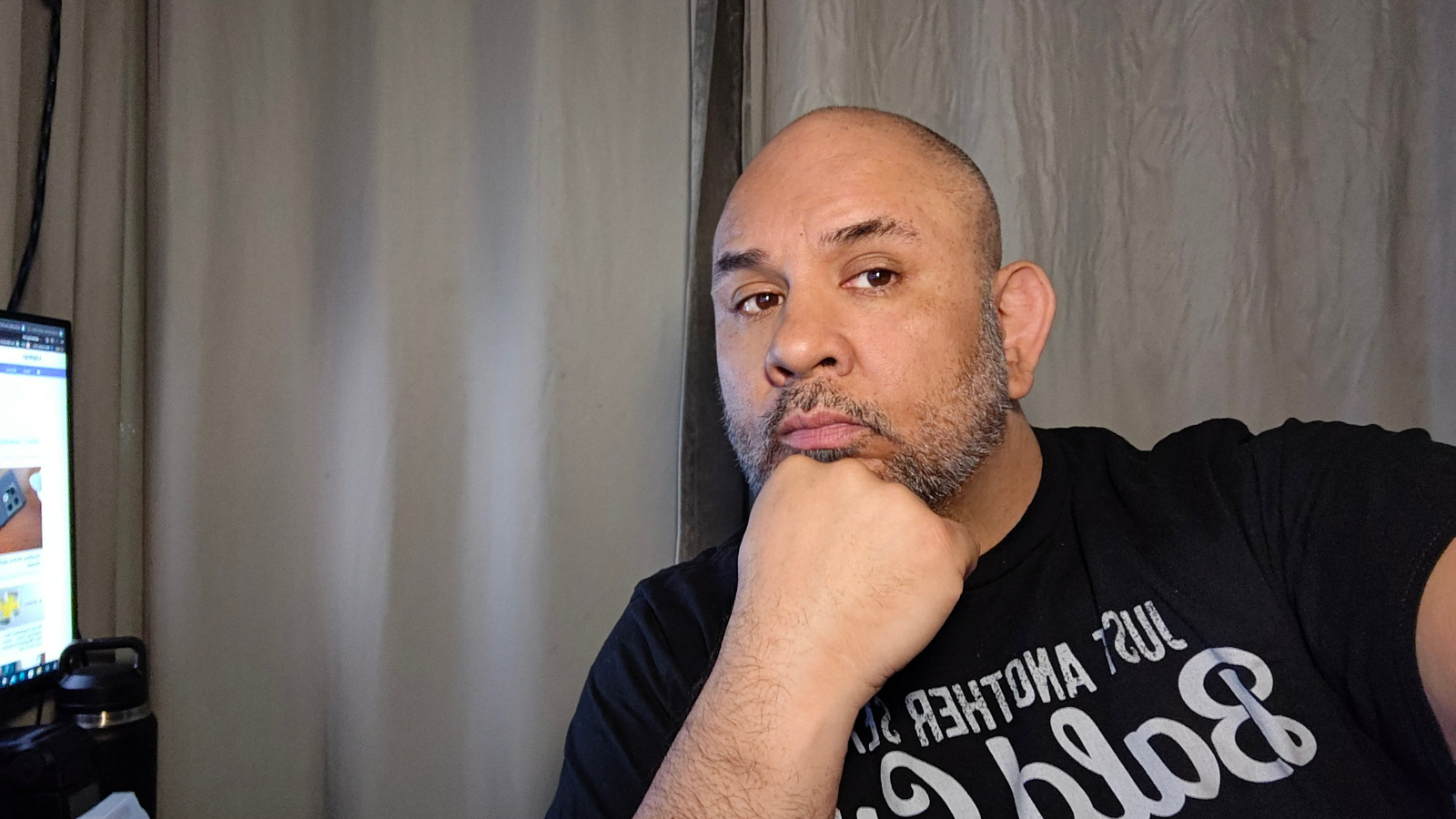
There’s a stark difference between relying on the harsh flash of a smartphone and using the Zumy. The most conspicuous distinction is that the light produced from the Zumy is warmer, more natural in most cases, and less harsh on your skin tone, which creates a softer look.
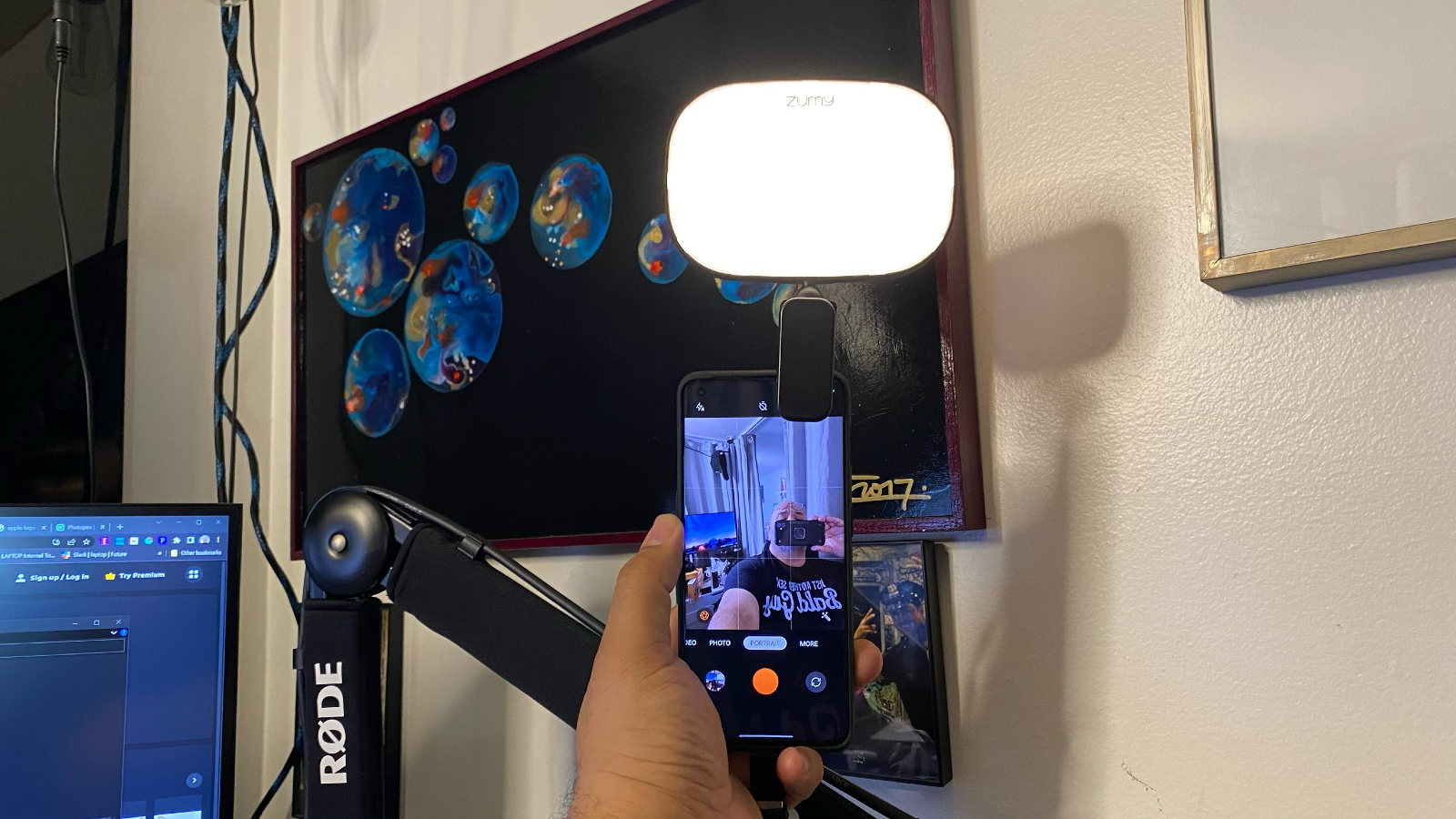
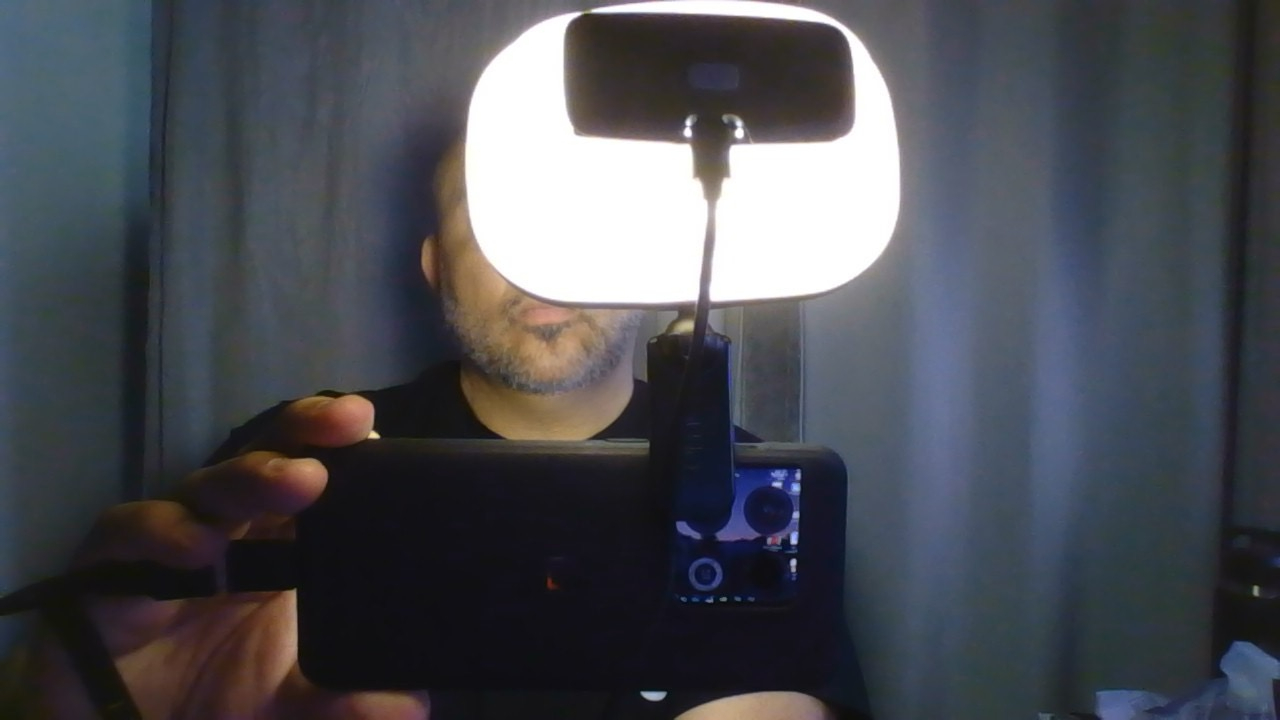

The four different levels of diffused light are more than bright enough for most lighting conditions, and it did work to soften the light on my face, even with other room lights on, by adding a subtle warm glow to my face.
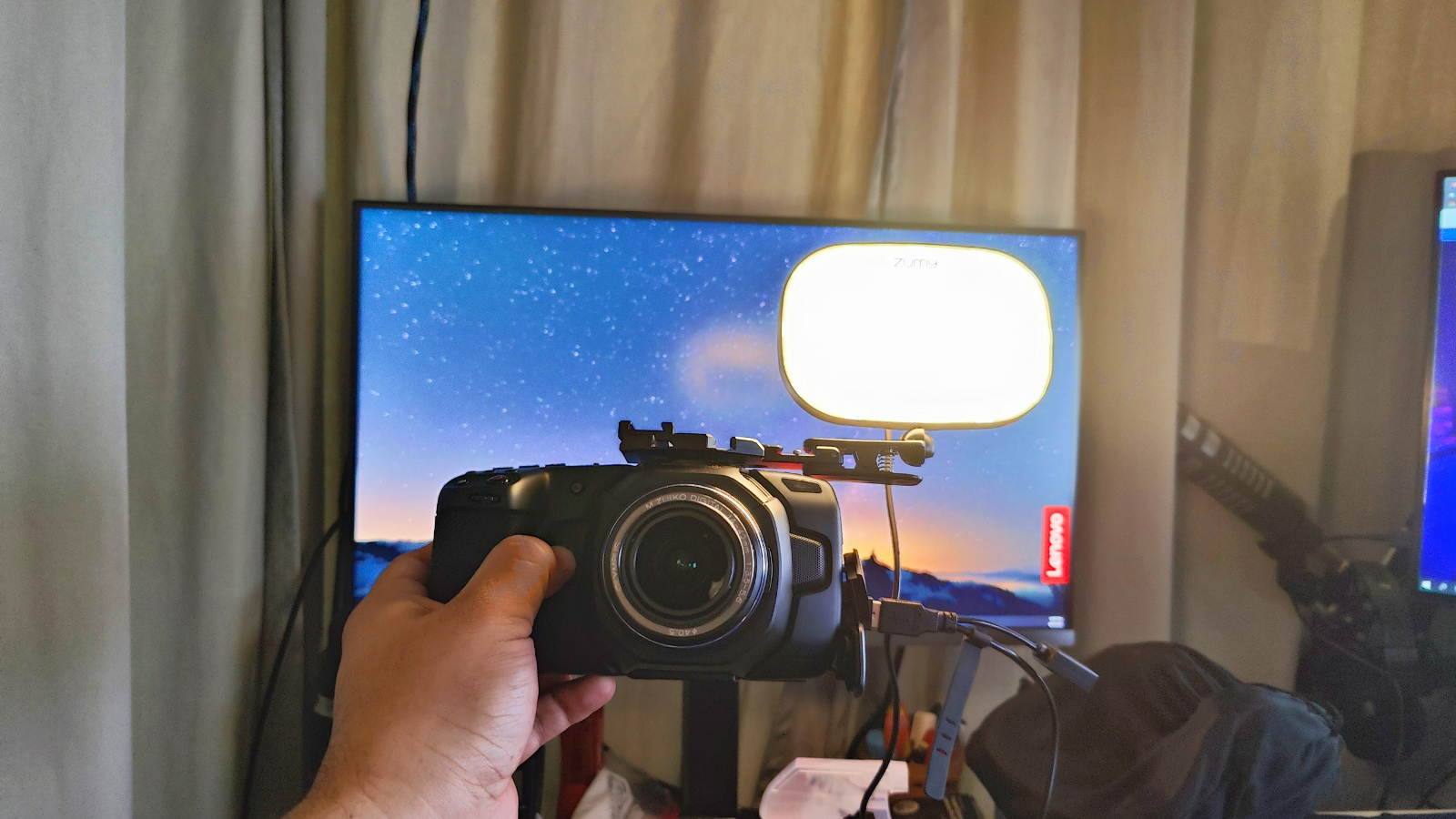
When I thought I was done with my tests, the Zumy had one little surprise left for me. Since I love to experiment, I thought “Why not use the USB-C adapter to connect it to my Blackmagic Pocket Cinema Camera 4K?” Like magic, it lit up, giving me some ideas about how to use this new lighting option.
Bottom Line
The Zumy pro quality light proved to be highly portable and versatile — and a little tougher than it feels and looks. However, it’s placed in a highly competitive market, which makes its $59.99 price feel a little steep.
It does provide bright, warm skin-softening light that many other LED lights and ring lights fail to achieve. It was smart of the makers of the Zumy to include a USB-C adapter, which not only allowed it to be connected to an Android phone, but also a BlackMagic Pocket Cinema Camera. However, it would be nice if they made a battery-powered version, so you wouldn’t need to be tethered. If you’re looking for a lightweight, versatile lighting solution, the Zumy might be the right fit for you, but maybe wait for a sale.

Mark has spent 20 years headlining comedy shows around the country and made appearances on ABC, MTV, Comedy Central, Howard Stern, Food Network, and Sirius XM Radio. He has written about every topic imaginable, from dating, family, politics, social issues, and tech. He wrote his first tech articles for the now-defunct Dads On Tech 10 years ago, and his passion for combining humor and tech has grown under the tutelage of the Laptop Mag team. His penchant for tearing things down and rebuilding them did not make Mark popular at home, however, when he got his hands on the legendary Commodore 64, his passion for all things tech deepened. These days, when he is not filming, editing footage, tinkering with cameras and laptops, or on stage, he can be found at his desk snacking, writing about everything tech, new jokes, or scripts he dreams of filming.

